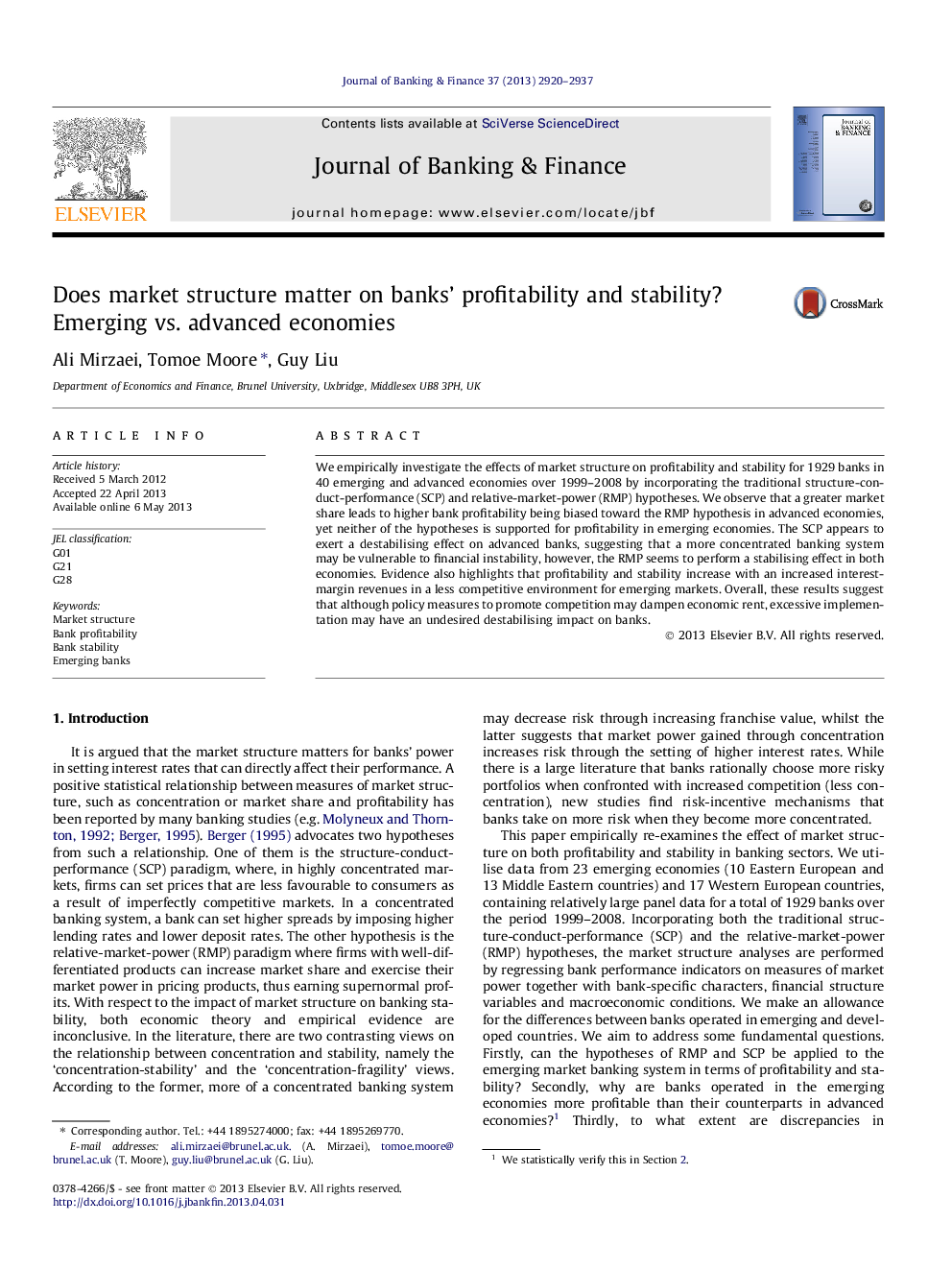| Article ID | Journal | Published Year | Pages | File Type |
|---|---|---|---|---|
| 5089288 | Journal of Banking & Finance | 2013 | 18 Pages |
â¢We empirically investigate the effects of market structure on bank performance.â¢Structure-conduct-performance and relative-market-power hypotheses are tested.â¢A greater market power leads to higher bank profitability in advanced economies.â¢Market structure hypotheses are not supported for profitability in emerging banks.â¢Market structure matters for bank stability for both types of economies.
We empirically investigate the effects of market structure on profitability and stability for 1929 banks in 40 emerging and advanced economies over 1999-2008 by incorporating the traditional structure-conduct-performance (SCP) and relative-market-power (RMP) hypotheses. We observe that a greater market share leads to higher bank profitability being biased toward the RMP hypothesis in advanced economies, yet neither of the hypotheses is supported for profitability in emerging economies. The SCP appears to exert a destabilising effect on advanced banks, suggesting that a more concentrated banking system may be vulnerable to financial instability, however, the RMP seems to perform a stabilising effect in both economies. Evidence also highlights that profitability and stability increase with an increased interest-margin revenues in a less competitive environment for emerging markets. Overall, these results suggest that although policy measures to promote competition may dampen economic rent, excessive implementation may have an undesired destabilising impact on banks.
